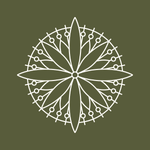What is Complementary Medicine?
Complementary medicine is the umbrella term for natural therapies used alongside conventional medical practices. Using complementary therapies can help improve the quality of a person's life as it helps alleviate pain, fatigue, stress and anxiety due to an illness or the effects of certain medical procedures they have undergone, such as surgery or cancer treatment. There are many types of complementary medicine, and each is grounded in the principle of achieving holistic wellness.

As they have been proven safe and effective, many complementary therapies are now considered important components for several conventional treatments, including:
- Acupuncture
- Naturopathy
- Yoga
- Meditation
- Massage Therapy
- Reiki
- Reflexology
- Traditional Chinese Medicine
Why Study Complementary Medicine?
Studying complementary medicine opens the door to personal and professional growth. You can apply the holistic healing systems that you learn to improve your wellbeing and make a living while helping others manage their health conditions. It's also worth noting that the employment rate in the industry has grown steadily over the last five years, making complementary therapists highly in demand across Australia.
What's more, completing an industry accredited course will gain you membership in peak organisations that represent practitioners of various complementary therapies such as the Australian Traditional Medicine Society (ATMS).
What Does it Take to Study Complementary Medicine or Become a Practitioner of it?
Naturopaths, massage therapists, energy healers, chiropractors, counsellors and other practitioners of complementary medicine share almost the same characteristics. They are passionate about uplifting others and unselfishly listen to them in order to understand what their clients are going through. This genuine interest in people enables them to provide the most suitable therapy that never fails to reap positive outcomes. If you can relate with them, you will no doubt flourish in a complementary medicine course.
Course and Study Options for Complementary Medicine
Many colleges and universities in Australia offer a broad range of complementary medicine courses that vary in nature. Some focus on the body, others on the mind, and there are those that delve into energetic and spiritual healing.
You may obtain your qualifications by starting with a certification program, an advanced diploma course, or perhaps take a three-year Bachelor of Complementary Medicine head-on. A six-month certification program provides the foundational principles of different natural therapies, which may be credited to an advanced course afterwards.
Undertaking a diploma course will deepen your knowledge of the study and prepare you for a degree-level program, where you can focus on your specific area of interest. Most schools deliver their coursework on-campus or online, with the latter allowing you more flexibility to work your study time around your other priorities.
How to Choose a School or Course in Complementary Medicine
The secret to landing in the right school and course is having all of the necessary information to hand. While you can obtain this online, nothing beats contacting the admissions officer of a qualified college or university and asking them what you want to know, including:
- Do they offer online courses in complementary medicine?
- Is the VET Student Loans program available at the institute?
- Can I study part-time?
- Who are the members of the faculty?
- What are the career outcomes for students
Feel free to check out the schools listed on Natural Therapy Pages to learn more about their offerings in the field of complementary medicine.





